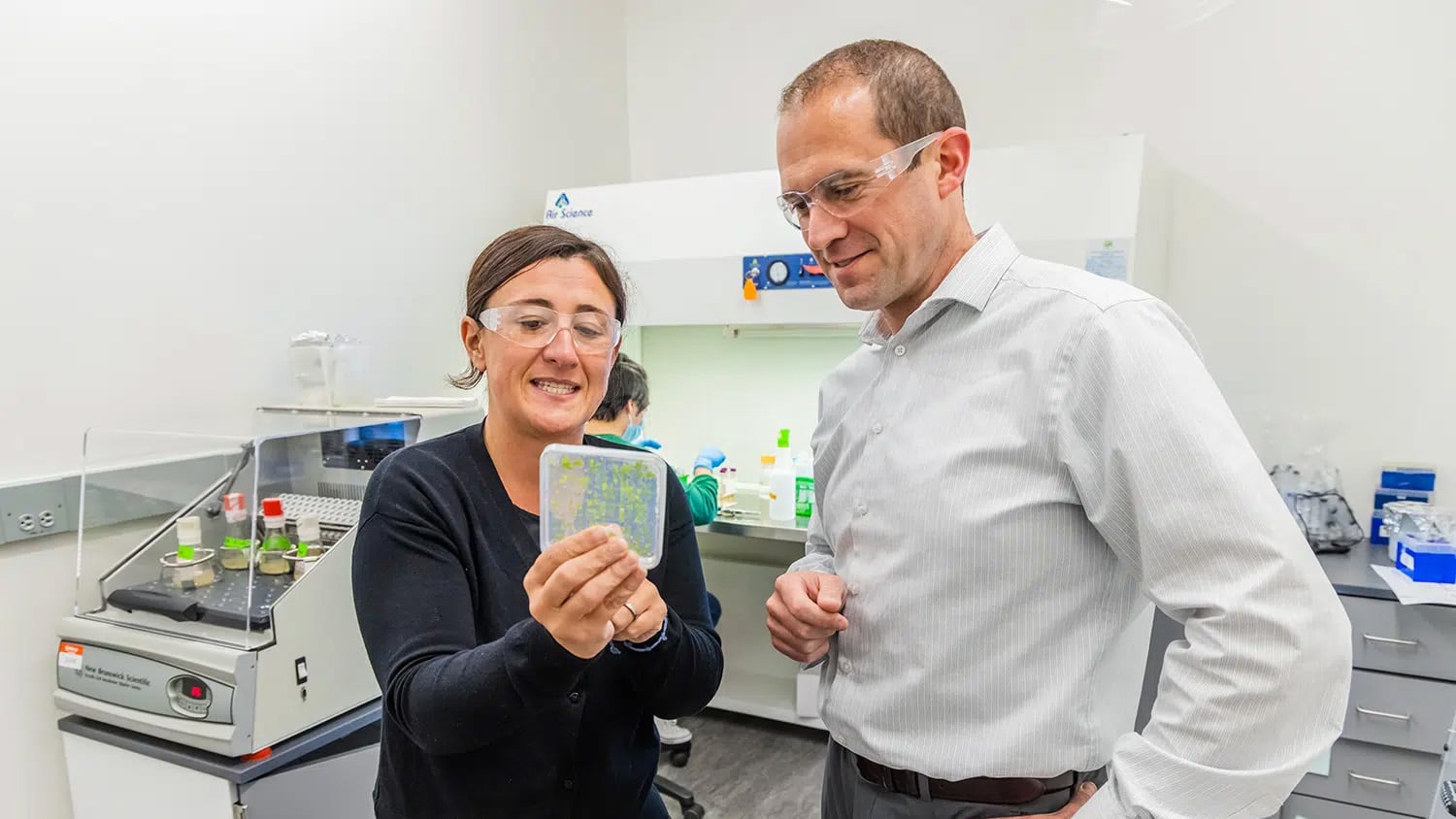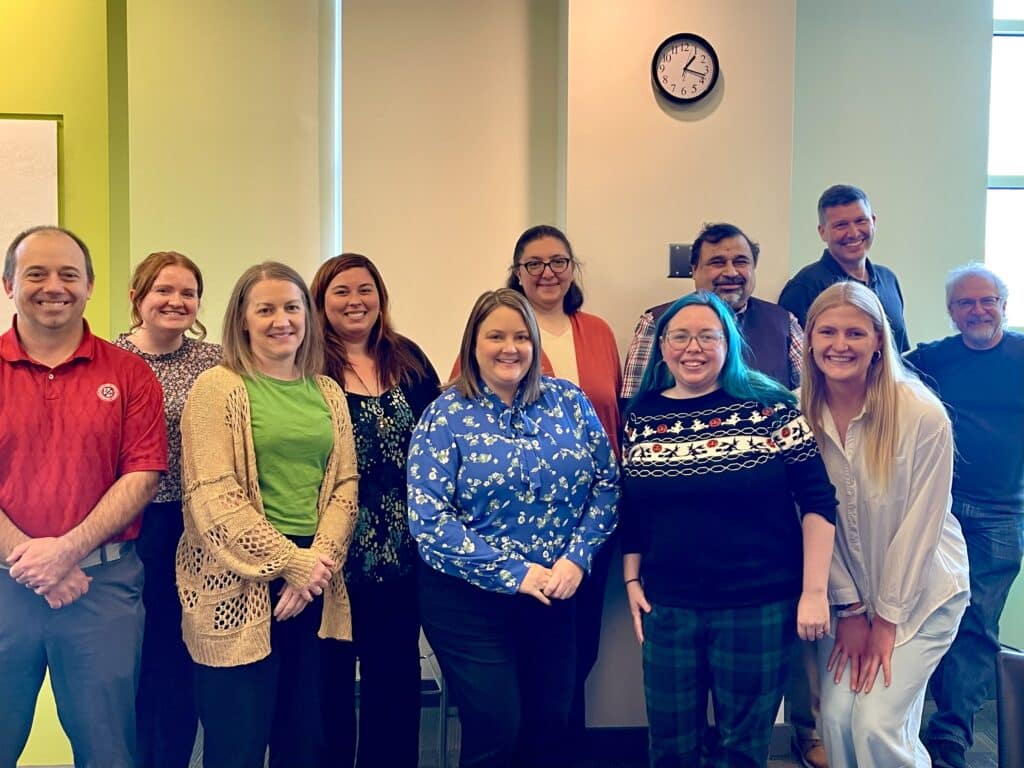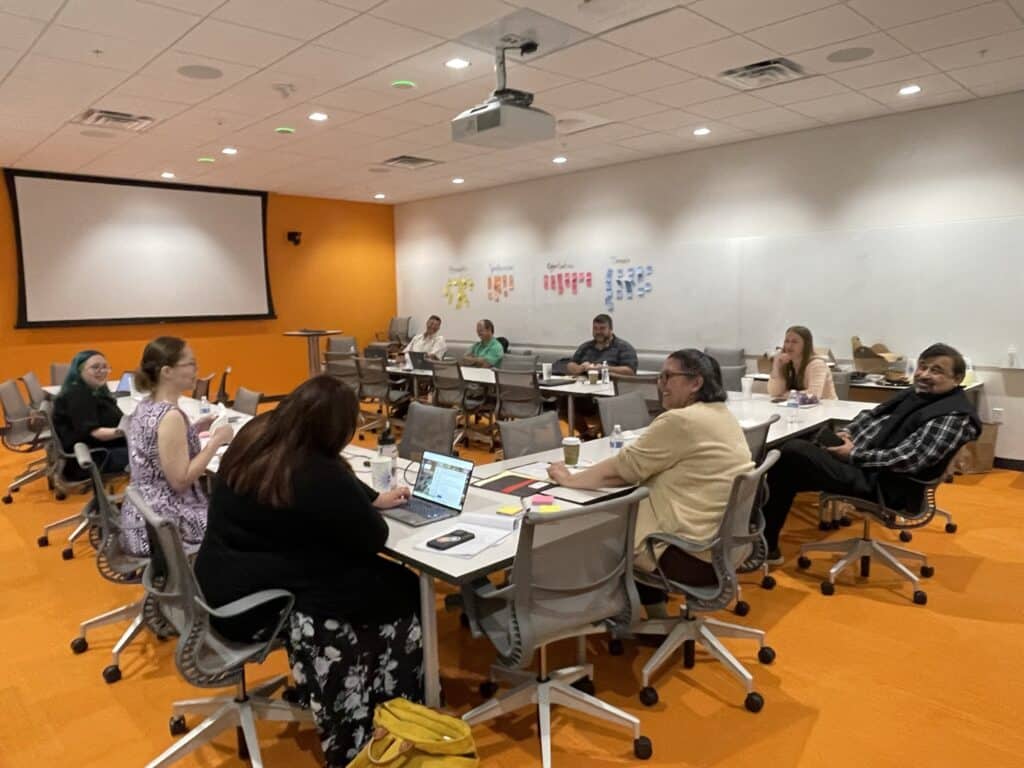Prolific Partners in Research
For 20 years, the Proposal Development Unit has helped NC State colleges and faculty secure more than $1 billion in research funding.

As home to two major interdisciplinary National Science Foundation (NSF) Engineering Research Centers, the NSF Science and Technology Center, the NSF AI Research Institute, the Department of Energy Manufacturing Innovation Institute (PowerAmerica) and several other high-profile programs and centers, NC State has established itself as one of the premier research institutions of the world. Working behind the scenes to bring these initiatives and many others to fruition is the Proposal Development Unit (PDU).
As part of the Office of Research and Innovation’s commitment to developing faculty and facilitating team science, the PDU provides free pre-award support for NC State faculty developing large-scale proposals (those requesting more than $1 million) for interdisciplinary research. Services include writing, editing and strategy consulting, budgeting, as well as training for faculty submitting proposals for grant-funded projects.
This year, the PDU is celebrating its 20th anniversary. Since its inception in 2004, the PDU has worked with faculty and colleges across the university to secure more than $1 billion in funds for interdisciplinary research. In the beginning, the PDU had three full time employees and helped faculty with about six to eight proposals per year. The team now consists of 11 full time employees who assisted with over 80 proposals in 2023.
“It feels like we’re ramping up the number of proposals we work on, and the vastness of them is definitely growing,” said project assistant Jessica Brown. “You see big announcements from the university about large grants being secured from these proposals, but the amount of work that goes on behind the scenes is just unreal. Our staff have expertise in the types of grants available, and they know what needs to be done to get them. The faculty who work with us are so appreciative as well.”
While proposal development is a relatively new career field, NC State was among the first universities in the nation to launch a PDU and has already established a strong reputation.
“Our proposal developers and proposal specialists have been asked to serve as mentors to other professionals elsewhere throughout the country, so I think people in our field know us and know about our successes,” said Pradip Pramanik, executive director for the PDU. “In the past three or four years, members of our staff have been asked to serve as reviewers by federal agencies, so we are becoming more visible on the national scale as well.”
Ironically, while the PDU is making inroads with peers across the nation, many NC State faculty members are still unaware of the services the department provides.
“Twenty years have gone by, and still there are so many faculty who tell me they didn’t know about the PDU,” Pramanik said. “Others have told me they wished they knew about it when they applied for a grant two years ago and didn’t get it. I always hate to hear that because it’s a lost opportunity — not just for them, but for NC State.”
Meet the Team

Molly Puente is assistant director for the PDU and oversees proposals in agriculture as well as health and life sciences. Her team has helped NC State faculty secure a number of major grants through the NSF, National Institutes for Health (NIH), U.S. Department of Agriculture (USDA) and others.
“We have touched so many different colleges and different types of proposals,” Puente said. “We started with a lot of projects from the Department of Education’s Graduate Assistance in Areas of National Need program, but over time we’ve kind of built up our strategic research and training programs support, and we’ve really gotten to know the federal agencies who oversee them. We’ve been able to develop and expand our expertise and serve as the place where faculty can go if they have questions about funding agencies’ backing for their research.”
One of the biggest programs under Puente’s purview is the USDA Sustainable Agricultural Systems, which has been crucial to NC State’s work in that field. Five years ago, proposal developer Michelle Frick worked with professor Chris Reberg-Horton and his team to pursue a Sustainable Agricultural Systems project on cover crops.
“It’s had a national impact, and the connections and collaborations that have come out of that program through our work with the agricultural communities here at NC State helped lay the groundwork for the Plant Sciences Initiative and other programs on campus,” Puente said. “It’s really great when our teams receive an award, but to be able to see it continue to grow five and 10 years later is the best part.”
Fellow assistant director Matthew Hooker oversees engineering and physical sciences proposals. He and his team often work with the College of Engineering, as well as faculty in the College of Sciences, College of Natural Resources and College of Education. During the past few years, his team has been successful in securing two NSF Research Traineeship program awards, aimed at training graduate students at NC State.
“One thing I always think about when helping to write these proposals is the impact they could have on graduate students,” Hooker said. “Grad students really benefit from the funding that is coming in for research because they get to work with faculty who are doing some pretty amazing things.”
Hooker also co-organizes a workshop each spring to help early-career faculty prepare proposals for NSF’s CAREER Program. This program offers support for new faculty seeking to build strong foundations of research and education in their respective fields. A collaboration between the College of Agriculture and Life Sciences, the College of Sciences and the College of Engineering, the workshop covers key aspects of proposal development and ultimately helps faculty submit competitive proposals. There are currently more than 50 faculty using CAREER grants to support their research.
“The point of this workshop is to walk them through some of the ins and outs of writing a proposal, help them figure out what the NSF is looking for and so on,” Hooker said. “It’s been well received, and the number of people who sign up has grown every year. It really indicates how much the university is growing and bringing in new faculty who are passionate about their work.”
Puente offers a similar service to faculty applying for NIH grants. She hosts a summer writing workshop for early career faculty members to familiarize them with grants from the NIH, such as the newer Maximizing Investigators’ Research Award (MIRA).
“It’s been really rewarding to see several of the folks who’ve come to the workshop apply for one of these grants and be successful,” Puente said. “These workshops are really great for early stage faculty to get a better understanding of how the proposal process works and how to write it not just from a scientific point of view, but to include some of the things the NIH is looking for and using the correct terminology.”
Last year, PDU webinars and workshops reached 312 attendees. This included three recurring webinar series — PDU@Lunch, NIH@NC State and DOD@NC State.
Looking Back and Looking Ahead
As the PDU celebrates its 20th anniversary this year, its staff members are reflecting on the past two decades and its many achievements. Looking toward the future of the PDU, Puente wants to focus on building strong relationships with a broader variety of agencies and even international funding sources.
“We’ll continue developing our strengths and learning about more agencies, and we also want to continue building bridges to other units across the university as well,” Puente said. “I see the future being very multidisciplinary and interdisciplinary, and that involves being able to work with departments across the colleges and helping faculty talk to people outside of their normal sphere of who they work with.”
Pramanik, meanwhile, foresees a need for more PDU staff to help meet the rising demand for research funding at the university.

“We are still a small team right now, and we are all about quality over quantity when it comes to our work,” Pramanik said. “As we look to the future, we want to be more strategic about what we do in terms of aligning the work of the PDU with university priorities. I have been personally working with faculty, center directors, academies, initiatives and associate deans for research with the colleges to understand their research priorities, to determine who the stars and rising stars are in terms of faculty, and then connecting that back with our goals and mission and those of the Office of Research and Innovation.”
Learn more about the PDU and its 20th anniversary by subscribing to its quarterly newsletter, which includes articles from PDU staff about proposal development, the funding landscape and funding opportunities of interest as well as information about upcoming events. Faculty can also access the PDU intranet page, which contains even more resources like global collaborations, early career resources and agency-specific resources for the Department of Defense, NSF, NIH, USDA and DOE.
- Categories:


